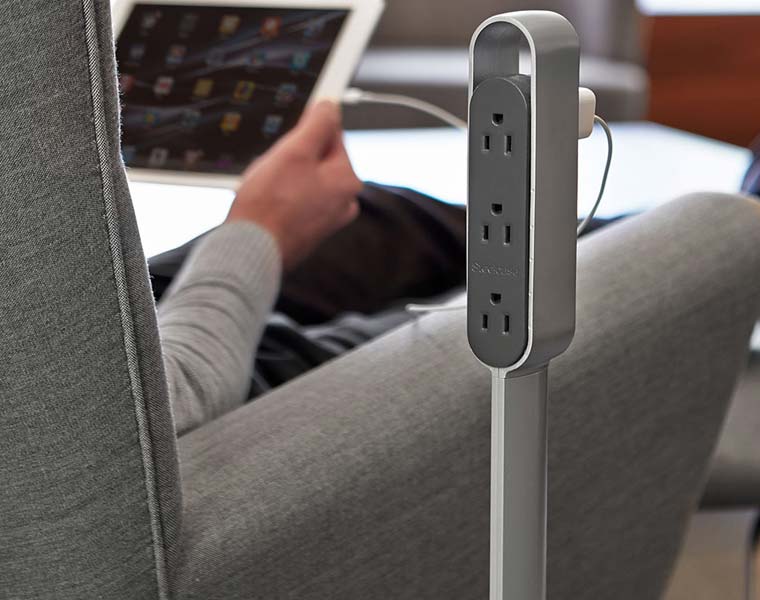As the modern working world continues to develop and concepts surrounding the optimum employee experience continue to evolve, there are a few things we know for sure. Two of these are that:
a) We are becoming more and more dependent on technology, which means constant access to power is becoming increasingly important.
b) Working styles are becoming more agile, nomadic and activity-based, which means technology, data connectivity and access to power need to be more adaptable than ever.

Active working calls for adaptable workspaces
Tradition meant that office workers were typically tethered to an assigned workstation or dedicated desk and when power was required, anchored to a fixed power source. Wires were normally chaotic and cluttered, calling for an array of cable management systems and a lack of flexibility around where power could be used.
These days, however, workers want to move from setting to setting throughout the day, not being restricted by the furniture or technology around them. If somebody wants to be able to move away from the desk to change posture in a lounge chair, they should be able to do so without having to sacrifice the use of one (or indeed any) of their devices.

The modern working world even requires multiple users to be able to access power from the same power source in settings such as collaborative spaces, meeting rooms and training facilities. Spaces need to be reconfigured on demand, including access to power and data connectivity.
People are now carrying an average of 3 different devices with them to get work done during the day
So, we know that more access to power is required and we know that this accessibility needs to be flexible and facilitate individual control around where and how people choose to work…
How do we cater for it going forward in terms of commercial design and workplace fit out? What are the solutions? One of the most effective is mobile and portable power.

Mobile power sources
Mobile power sources have been designed with agility and adaptability in mind. It means staff can plug in and power up wherever they are which helps maintain concentration levels, flow of idea-sharing, productivity and communication.
We are seeing more and more of these types of power solutions being introduced into workspaces as fixed outlets become increasingly inconvenient. We have seen it happen with phone-charging power banks on an individual level, now it’s being scaled up to improve the experience and efficiency for teams and entire workforces.

The benefits of mobile power:
- Helps minimise the need for costly and disruptive fit out processes such as core drilling and trenching.
- Helps limit the need for raised flooring to conceal power outlets which aren’t always viable for small businesses with a modest amount of space and a restricted budget.
- Improves usability and ergonomics as workers can access power from a wide variety of postures and positions. Gone are the days of crouching on the floor to charge your phone battery!
- Reduced appearance of unsightly cables and wires to streamline both the look and functionality of the space – an essential part of decluttering the workplace.
- Contributes towards the creation of an inclusive workplace e.g. making access to power much easier for staff in wheelchairs.
